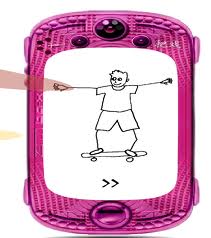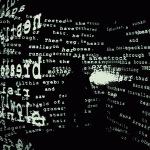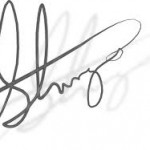 Day 1: Understanding Electronic Literature
Day 1: Understanding Electronic Literature
What is electronic literature? Who are its authors and what are works to explore?
An introduction to electronic literature, including terminology, traditions, and history; an exploration of its different genres and approaches, such as hypertext fiction, literary games, flash poetry, interactive fiction, mobile and geo-locative works––and representative authors.
Readings:
- N. Katherine Hayles, “What Is Electronic Literature?” http://eliterature.org/pad/elp.html
- Margie Luesebrink & Stephanie Strickland, “Seven Types of Interface” (doc)
- Noah Wardrip-Fruin, “Digital Media Archaeology: Interpreting Computational Processes,” http://games.soe.ucsc.edu/sites/default/files/nwf-BC7-DigitalMediaArchaeology.pdf
- Christopher Funkhouser, “IBM Poetry,” http://writing.upenn.edu/pennsound/x/Funkhouser-IBM-Poetry.html
Lead Facilitator: Dene and Davin
9:30 a.m.-10:45
Introduction to the course, instructors, and participants
A general discussion about definitions, theories, and works
“Game, Game, Game and Again Game,” by Jason Nelson
“Zoology,” by Sasha West
10:45-11:00 a.m. Break
Lead Facilitator: Davin
11:00-12 Noon p.m.
Kinetic poetry and prose, database narratives, & net prov:
“First Screening,” by bpNichol
“Typoemas” and “Anipoemas,” by Ana Maria Uribe
“Stir Fry Texts,” by Jim Andrews
“Sound Poems,” by Jorg Piringer
“Muds,” by Jhave
“J. B. Wock,” by Eugenio Tisselli
“Grafik Dynamo,” by Kate Armstrong and James Tippett
“Camel Tail,” by Sonny Rae Tempest
Lead Facilitator: Dene
1:30 p.m.-2:15 p.m.
Mobile E-Lit
P.O.E.M.M., by Jason Edward Lewis
“For All Seasons,” by Andreas Muller
“Vniverse,” by Stephanie Strickland and Ian Hatcher
“Pry,” by Danny Cannizzaro and Samantha Gorman
“Upgrade Soul,” by Erik Loyer
“Urban Rhythms,” by Jody Zellen
Lead Facilitator: Davin
2:30-3:15 p.m.
Literary Games and Gameful Works:
“Galatea,” by Emily Short
“Arteroids,” by Jim Andrews
“The Possession of Christian Shaw,” by Donna Leishman
“New Word Order,” by Sandy Baldwin
“Nothing You’ve Done Deserves Such Praise,” Jason Nelson
“Ice-Bound,” by Aaron Reed and Jacob Garbe
“Speidi Show,” by Mark Marino and Rob Wittig
Lead Facilitator: Dene
3:15 p.m.-4:00 p.m.
Pathfinders: John McDaid, Judy Malloy, Shelley Jackson, Bill Bly, and Stuart Moulthrop;
Dene will show the Pathfinders and talk about the project.
 Day 2: Theories and Critical Practices of Electronic Literature
Day 2: Theories and Critical Practices of Electronic Literature
What are the theories and critical practices involving the scholarship of electronic literature?
An in-depth look at theories and critical practices, such as media-specific analysis, platform studies, critical code study, and close reading; group and individual critiques of works of electronic literature; an introduction to publishing opportunities for scholarship of electronic literature; a discussion of issues, such as obsolescence and preservation, performativity, and multimediality; boundaries; and embodiment.
Readings:
- Ted Byfield, “Lex Americana,” http://www.ljudmila.org/~vuk/ascii/ted_eng.htm
- Florian Cramer, “Digital Code and Literary Text,” http://cramer.pleintekst.nl/essays/digital_code_and_literary_text/digital_code_and_literary_text.pdf
- Florian Cramer, “Post-Digital Writing,” http://www.electronicbookreview.com/thread/electropoetics/postal
- Matthew Fuller and Andrew Goffey “Towards an Evil Media Studies,” http://www.spc.org/fuller/texts/towardsevil/
- The E-Literary World and the Social,” http://electronicbookreview.com/thread/electropoetics/social
- Stelarc, “Zombies and Cyborgs,” http://stelarc.org/documents/zombiesandcyborgs.pdf
- Maria Angel and Anna Gibbs, “At the Time of Writing,” http://www.electronicbookreview.com/thread/electropoetics/gesture
- Sandy Baldwin, “Ping Poetics,” http://electronicbookreview.com/thread/electropoetics/circulatory
Lead Facilitator: Davin
9:00 a.m.-noon
Theories of Computational Literature
Download slides
Davin’s supplemental links :
- Language, Literacy and Writing
- Bernard Stiegler––reception of a work
- N. Katherine Hayles, Media Specific Analysis (technicity of object)
- Mark Marino. “Critical Code Studies.” Electronic Book Review. http://www.electronicbookreview.com/thread/electropoetics/codology
- CCS Web page: http://criticalcodestudies.com/wordpress/
12 noon-1:30 p.m. Lunch
- Lead Facilitator: Dene
1:30 p.m.-3:30 p.m.
Writing about E-Lit
Content, Cultural Form, Material Form - “Cruising,” by Ingrid Anderson and Megan Sapnar; Maya Zalbidea Paniagua,
“Exploiting Hypertext’s Potential for Teaching Gender Studies,”
https://periodicos.ufsc.br/index.php/textodigital/article/view/1807-9288.2012v8n1p104/22406 - “EnigmaN,” by Jim Andrews; pages from Leo Flores’ dissertation, pgs. 164-172.
http://drum.lib.umd.edu/handle/1903/10799 - “Underbelly,” by Christine Wilks; Leo Flores, I ♥ E-Poetry, http://iloveepoetry.com/?s=wilks
- “Amor de Clarice,” by Rui Torres; “New strategies of anthropophagy in Brazilian/Portuguese digital literature,” by Alckmar Luiz dos Santos, http://link.springer.com/article/10.1007/s11059-009-0017-1
- ““Entre Ville”,” by J.R. Carpenter; Brian Kim Stefans, “Third Hand Play,” http://openspace.sfmoma.org/2011/09/third-hand-plays-struts-by-j-r-carpenter/
- “Shy Boy”,” by Thom Swiss; Leo Flores, I ♥ E-Poetry, http://iloveepoetry.com/?p=167.
Here is the URL to the Google Doc to use for putting your critical works from today
Lead Facilitator: Davin Heckman
3:30 p.m.-4 p.m.
CELL: Taxonomy
 Day 3: Curating Electronic Literature
Day 3: Curating Electronic Literature
How does one go about curating an exhibit or creating an archive of electronic literature?
A hands-on workshop in conceptualizing, selecting, and organizing an exhibit and archive of electronic literature; an introduction to theories of curation involving spatial, audience, aesthetic, and art-object considerations; a discussion of resources and strategies for mounting an exhibit or developing a sustainable archive; a discussion of collateral materials for exhibits like websites, catalogs, signage, handouts, and announcement cards.
Readings:
- Dene Grigar, “Curating Electronic Literature,” http://www.digitalhumanities.org/dhq/vol/8/4/000194/000194.html
- “Emerging Literature and Its Emerging Forms,” Library of Congress information site: http://www.loc.gov/rr/program/elit-showcase.html; the archival site for the exhibit: http://dtc-wsuv.org/elit/elit-loc/
- Vince Dziekan, Virtuality and the Art of Curation, Forward, Chs. 1, 2, and 6
Databases, Collections, Organizations and Journals:
- ELMCIP’s Anthology of European Literature
- Electronic Literature Collections, 1 & 2
- ELL Catalog
- Electronic Literature Organization
- Electronic Literature Directory
- Consortium of Electronic Literature (CELL Project)
- NT2 (Canada)
- PO.EX (Portugal)
- I <3 E-Poetry
- Hermaneia (Barcelona)
- Brown Digital Repository
- Likumed/Litnet (Siegen)
- ADELTA (Sydney)
- Ciberia (Madrid)
- Electronic Book Review
- Hyperrhiz
- Dichtung Digital
Lead Facilitator: Dene
9:00 a.m.-10:30 a.m.
Slide Show: What is curating? Download Slide Show here: Key PPT
Resources:
Lead Facilitators: Davin
10:30 a.m.-12 Noon
Exploration of exhibits, anthologies, collections
Lead Facilitator: Dene
1:30 p.m.-4 p.m.
Slide Show: What is unique about curating electronic literature? Slide Show: Key PPT
Development of an exhibit (aimed to be prepared as an online archive following the course). Here are the two handouts for this section of the day: Curating Gallery Plan
 Day 4: Creating Electronic Literature
Day 4: Creating Electronic Literature
How does one make electronic literature?
A hands-on workshop on creating electronic literature, focusing on the underlying structure of a work, such as platform and code, as well as the digital objects that contribute to the content of a work; an introduction to multimodal production and time-based media; a general overview of tools and methods.
Readings:
- Nick Montfort, “Who Grabbed My Gorge,” http://nickm.com/post/2011/07/who-grabbed-my-gorge/
- Jim Andrews, “Stir Fry Texts“
- Twine, http://twinery.org
- “52 Twine Stories“
- Dene Grigar, “The 24-Hour Micro-Elit Project“
- From Jim Andrews, http://vispo.com/StirFryTexts/about.html
- Michael Joyce, “Twelve Blue“
Lead Facilitators: Jim, Dene, and Davin
9:00 a.m.-9:10 a.m. Introduction to Jim Andrews and his work
9:10 a.m.-9:40 a.m. “How to Conceptualize a Project”
A discussion about how to develop your ideas for a work of e-lit, limit scope, figure out the affordances of the tools you have on hand, think about audience and message.
9:40 a.m.-10:20 a.m. Jim shows “Stir Fry Texts;” Dene shows hypertext texts; Davin shows social media literature
10:20 a.m.-10:30 a.m. Break
10:30 a.m.-11:oo a.m. Participants explore/read e-lit examples and conceptualize the project they wish to pursue.
11:00 a.m.-11:20 a.m. Jim shows how Stir Fry texts are made.
11:20 a.m.-11:40 noon Dene shows how hypertexts texts are made.
11:40-12 noon Davin shows how texts are made with social media.
12 noon-1:30 p.m. Lunch
1:30 p.m.-3:30 p.m. Participants work on e-lit poetry or narratives.
3:30 p.m.- 4:00 p.m. Students show works, discussion, and wrap up.
****Tonight is the E-Lit Reading at Felicita’s on the UVic Campus, 7:30 p.m.-9:00 p.m. This event is free and all participants are encouraged to read and attend.
 Day 5: Teaching Electronic Literature
Day 5: Teaching Electronic Literature
What methodologies can be used to teach electronic literature in the classroom?
An examination of syllabi used for teaching electronic literature; an introduction to books and articles appropriate for various levels of classroom instruction; suggestions for activities to engage students in a meaningful exploration of electronic literature.
Readings:
- Dene’s Course (circa 2009) DTC 354 Digital Storytelling
- Dene’s Course (circa 2011) DTC 354 Digital Storytelling
- Dene’s Course (circa 2008-10): DTC 338 Electronic Literature
- Dene’s Grad Course in E-Lit (circa 2002-4): ENG 5903
- ELMCIP’s Teaching Resources
Lead Facilitators: Davin, Sandy, and Dene